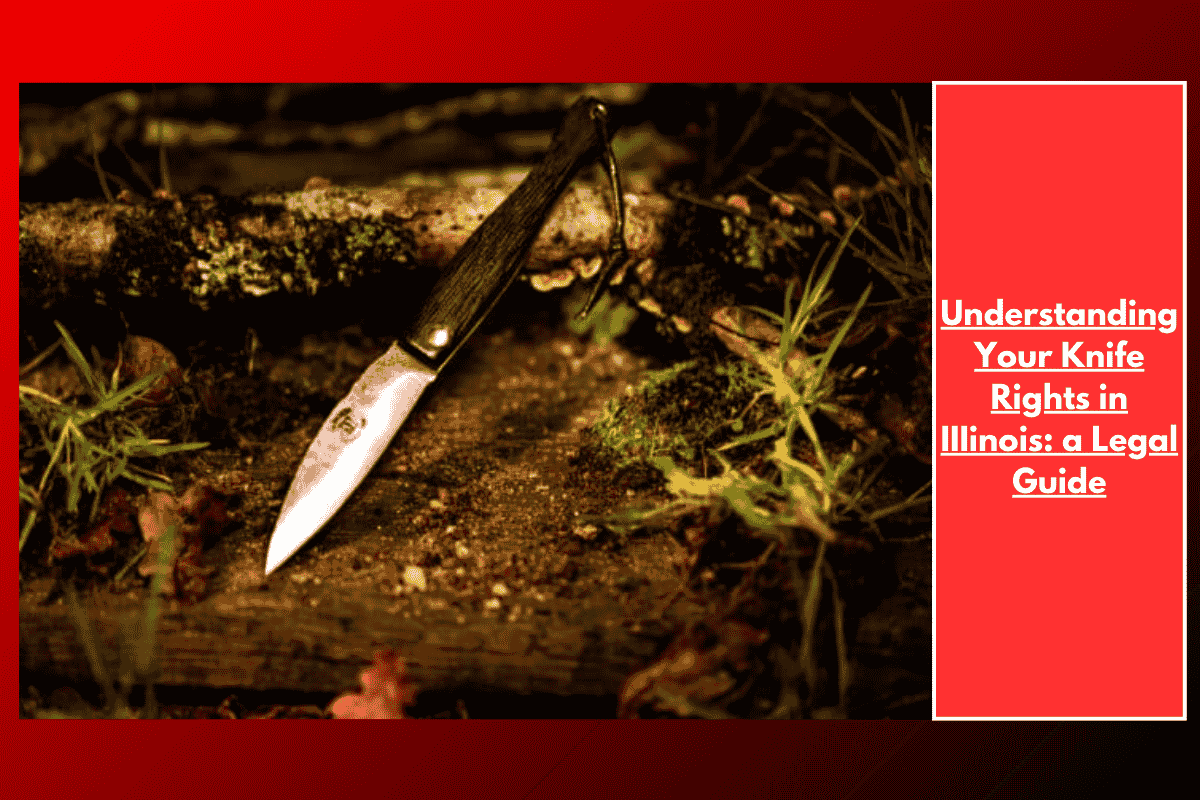In Illinois, as in many other states, owning and carrying knives is subject to certain laws and regulations. Whether you’re a collector, enthusiast, or someone who uses knives for everyday purposes, it’s essential to understand your rights and the legal framework around knives in the state. Illinois law outlines what types of knives are legal to carry, where they can be carried, and under what conditions. This guide will help you navigate Illinois’ knife laws, giving you a clearer understanding of what’s allowed and what isn’t.
Illinois Knife Laws: What You Need to Know
In Illinois, knives are considered a legal weapon under the law, and there are specific rules that govern their possession and use. These laws primarily focus on the type of knife, its purpose, and where it is carried. While knives are legal to own and carry in many situations, there are key legal restrictions that you should be aware of.
Types of Knives and Legal Ownership
The first step in understanding Illinois knife laws is knowing what kinds of knives are legal to own and carry. In Illinois, you are allowed to possess a wide variety of knives, such as:
Fixed-Blade Knives: These are knives where the blade is rigidly fixed to the handle. They are generally legal to own and possess in Illinois.
Folding Knives: These knives have blades that fold into the handle. As long as the blade is not locked into place (which can make it classified as a “switchblade” or “automatic” knife), folding knives are usually legal to possess.
Automatic Knives: Also known as switchblades, these knives open automatically when a button or switch is pressed. In Illinois, owning or possessing automatic knives is illegal unless you fall into specific exceptions, such as law enforcement or military personnel.
Carrying Knives in Illinois
One of the most important aspects of Illinois knife laws is the regulation of carrying knives in public. Illinois law divides knives into two categories for the purpose of carrying them: concealed and open carry.
Concealed Carry: In Illinois, it is illegal to carry a concealed knife, meaning that it is unlawful to carry a knife in such a way that others cannot easily see it. This applies to almost all types of knives, including folding knives, if they are carried concealed on your person. There are certain exceptions, such as if the knife is being carried for a lawful purpose, like hunting or camping, or if you have a concealed carry license for a weapon. However, for the most part, concealed knife carry is prohibited.
Open Carry: You are allowed to openly carry a knife in Illinois, but this can depend on local ordinances. Many municipalities have their own laws regarding open carry, which can be more restrictive than the state law. For example, Chicago has stricter rules about carrying knives, including prohibiting certain types of knives from being carried, such as switchblades and large knives. It’s important to check local laws to avoid violations when carrying knives openly.
Prohibited Knives in Illinois
While Illinois allows the possession and carrying of many types of knives, there are specific knives that are prohibited under the law. These include:
Switchblades: Automatic knives that open with the push of a button are illegal to own or carry in Illinois. This includes knives with a spring mechanism or similar automatic opening devices.
Ballistic Knives: These knives, which have a blade that is shot out of the handle, are strictly prohibited in Illinois.
Undetectable Knives: Knives made from materials that cannot be detected by metal detectors (such as plastic) are prohibited under Illinois law.
Knife Carrying Restrictions in Specific Locations
In addition to general rules about carrying knives, Illinois law also imposes restrictions on carrying knives in certain locations. These restrictions apply to both concealed and open carry:
Schools: Carrying knives, along with other weapons, is prohibited on school grounds in Illinois. This applies to both students and adults, and violators can face criminal charges.
Government Buildings: Knives are generally prohibited in government buildings and facilities, including courthouses and federal buildings.
Public Places: While carrying knives in public is allowed in many cases, certain areas, such as parks or festivals, may have their own restrictions. Always check local ordinances to ensure you are complying with all relevant laws.
Defenses for Knife Carry Violations
If you are found carrying a knife illegally in Illinois, there are a few potential defenses that could apply, including:
Lawful Purpose: If you were carrying a knife for a lawful purpose, such as for work, hunting, or camping, this could be a valid defense in some cases. For instance, carrying a fixed-blade knife while hiking or camping may be seen as a legal reason for having the knife with you.
Non-Concealed Carry: If you were carrying a knife openly and in accordance with the law, this could serve as a defense against allegations of carrying a concealed weapon. However, it’s important to make sure that you comply with local laws about open carry.
Penalties for Violating Knife Laws in Illinois
Violating Illinois’ knife laws can result in criminal penalties. The severity of the penalties depends on the specific violation and the circumstances:
Class A Misdemeanor: Carrying a concealed knife without a valid reason can lead to a Class A misdemeanor charge, which carries a maximum penalty of up to one year in jail and a fine of up to $2,500.
Class 4 Felony: If you are found in possession of a prohibited knife, such as a switchblade, you could face a Class 4 felony charge, which may carry a penalty of 1 to 3 years in prison and a fine of up to $25,000.
Understanding your rights and responsibilities when it comes to knives in Illinois is essential to avoid breaking the law. While knives are generally legal to own, there are strict regulations regarding carrying and certain types of knives that are prohibited. Be aware of local ordinances, as they can have stricter rules, especially in cities like Chicago. By following Illinois’ knife laws and understanding the limitations on where and how you can carry a knife, you can avoid legal trouble while exercising your rights.
SOURCES
[1] https://tkellknives.com/knife-laws-in-illinois-navigating-legal-carry-and-restrictions/
[2] https://www.couteaux-morta.com/en/illinois-knife-laws/
[3] https://nobliecustomknives.com/us-knife-laws/illinois-knife-laws/
[4] https://www.akti.org/state-knife-laws/illinois/
[5] https://edc.ninja/illinois-knife-laws/














